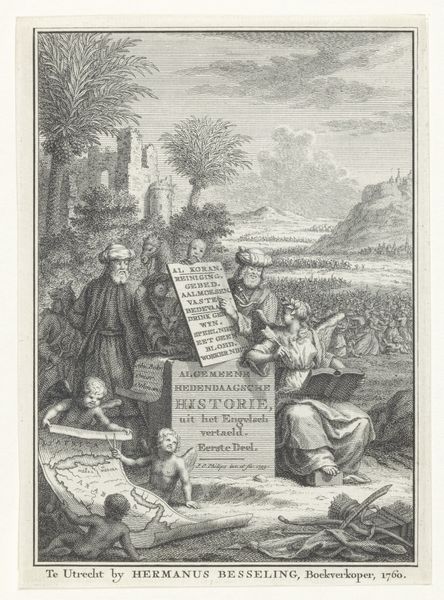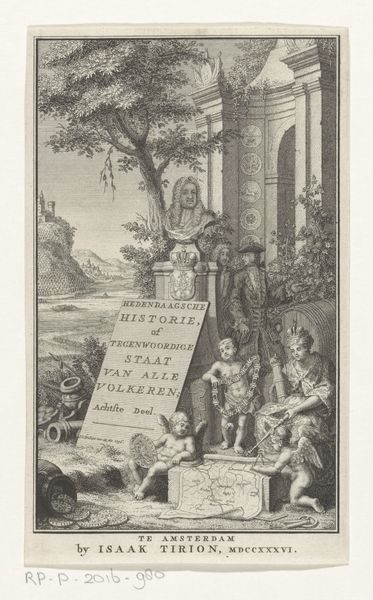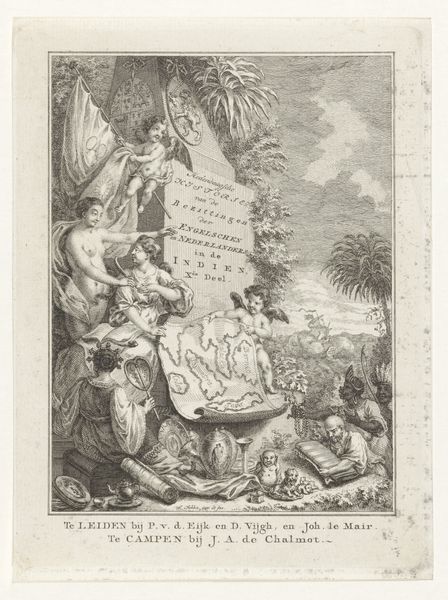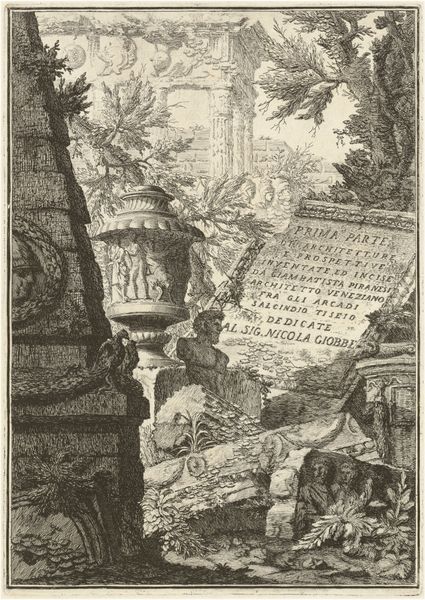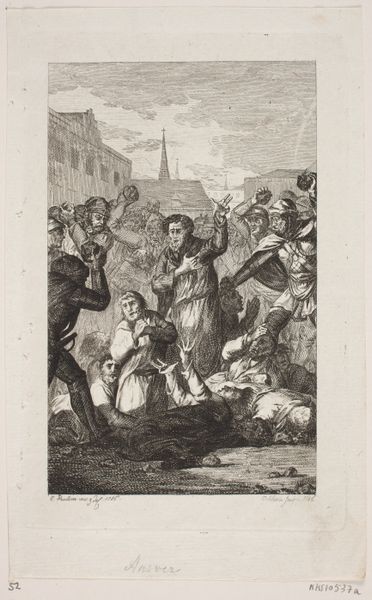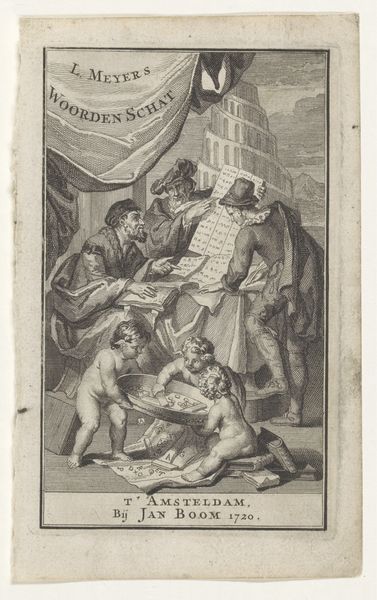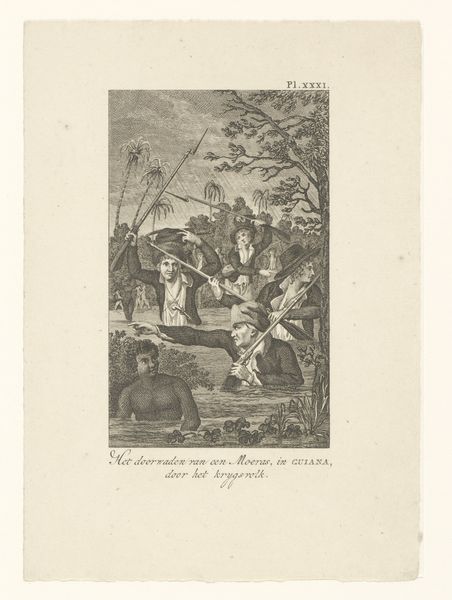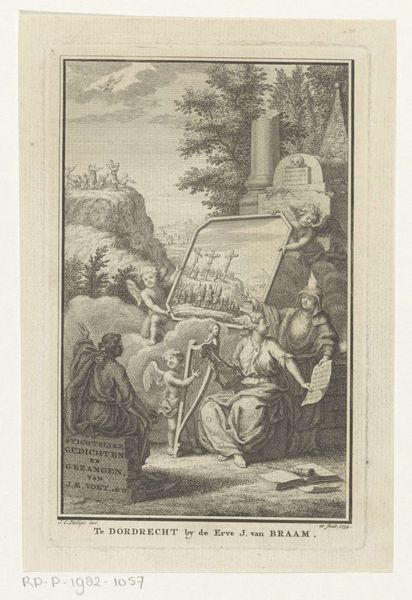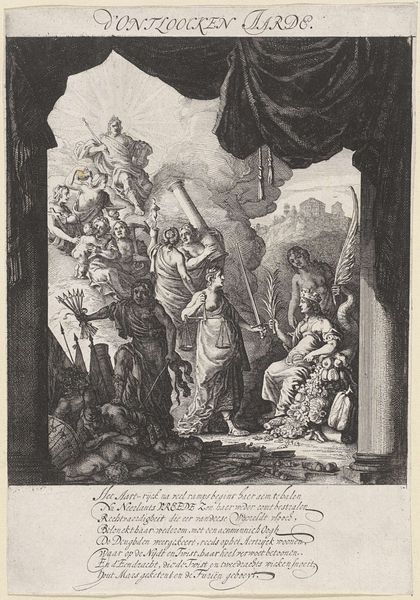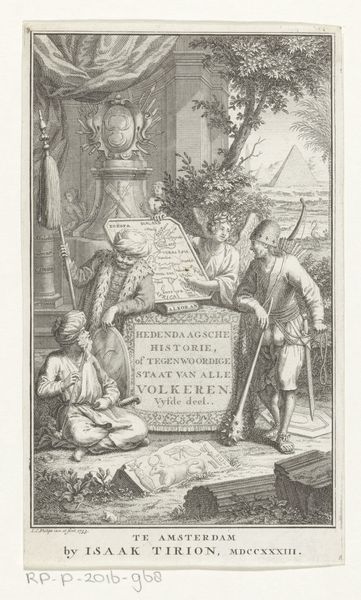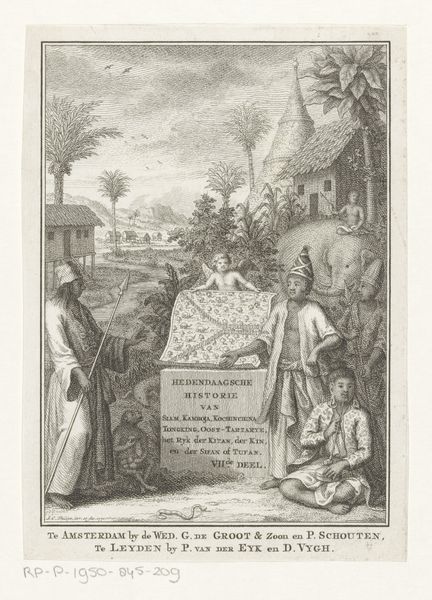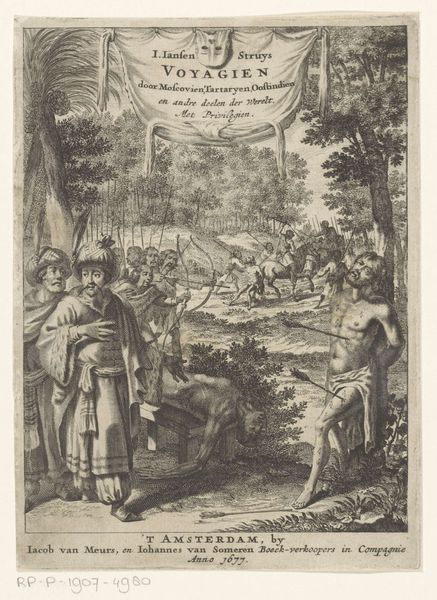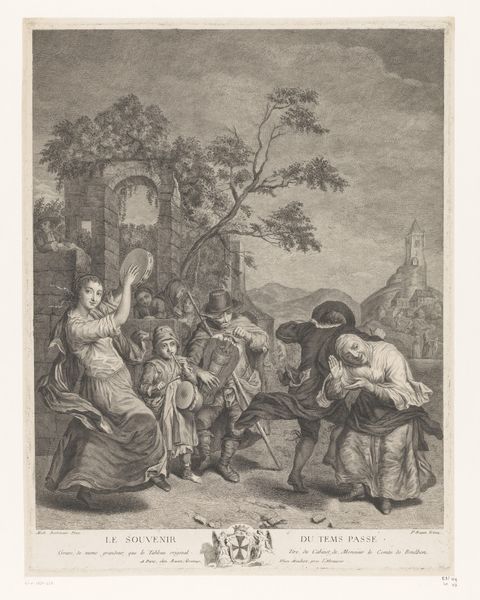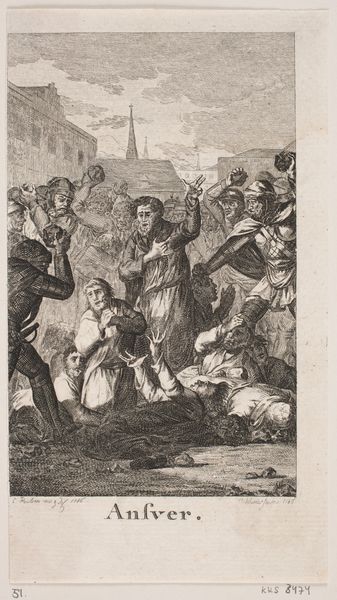
Dimensions: height 172 mm, width 121 mm
Copyright: Rijks Museum: Open Domain
This engraving was made in 1761 by Jan Caspar Philips and reproduced using a printing press, a key technology of the early industrial era. Look closely, and you'll notice the sharp lines and intricate details achieved through the labor-intensive process of carving into a metal plate. These plates would have been made by highly skilled artisans who, through precision and expertise, translated an allegorical scene into a reproducible image. This was then printed onto paper, a commodity increasingly available due to the rise of global trade. Notice the allegorical figures and symbolic elements, which reflect the social and political concerns of the time, hinting at the complex interplay between power, knowledge, and cultural exchange. By focusing on the materials and the methods, we can understand the print not just as a picture, but as a product of its time, deeply enmeshed in the networks of labor, commerce, and cultural values.
Comments
No comments
Be the first to comment and join the conversation on the ultimate creative platform.
